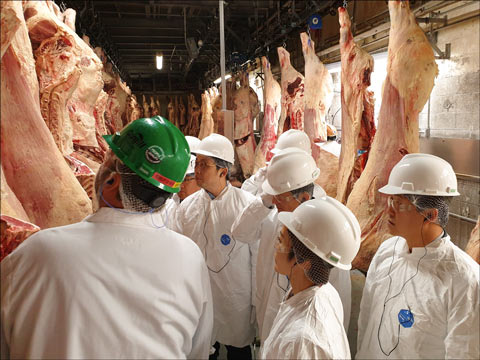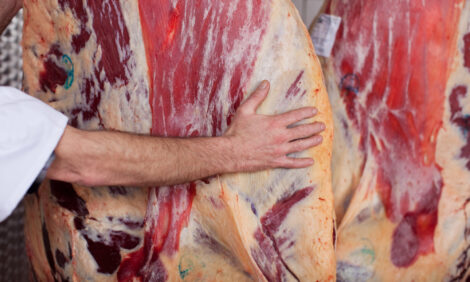



Coronavirus continues to roil UK meat supply chain
The COVID-19 pandemic can still disrupt abattoirs at short notice, illustrating the continued influence the disease has on the red meat supply chain.As COVID-19 continues to overshadow the red meat supply chain in a number of ways, it remains the case that abattoirs and meat cutting plants can be disrupted at short notice, according to Stuart Ashworth, Director of Economics at Quality Meat Scotland (QMS).
In the latest market commentary, Mr Ashworth notes that globally, diminished workforces can lead to the temporary closure of businesses, with staff isolating because they have COVID-19 or because they are contacts of those who have the virus.
“When an abattoir closes it immediately creates challenges for all in the supply chain,” said Mr Ashworth.
.jpeg)
“At one level, farmers cannot send animals for slaughter and at another the supply of meat to consumers becomes disrupted. Delays in animals reaching abattoirs can lead to animal welfare concerns as numbers build up on farms,” he continued.
Contingency plans to handle these situations can ripple through the whole supply chain as was the case in recent weeks when the Scottish and UK pig supply chain were impacted by disruption to pork processing facilities in East Anglia.
“What these disruptions show is how integrated the UK red meat supply chain is with specialist cutting and packing plants, for example, drawing raw material from several locations around the UK,” said Mr Ashworth.
Mr Ashworth explains that where these integrated supply chains include a component from Northern Ireland, the risk of disruption is compounded by uncertainty over Brexit and the demands it will place on trade between Great Britain and Northern Ireland.
“Any slowing down of the efficiencies of the supply chain inevitably create cost within the supply chain whether it simply be the feed cost of holding animals on farm or the increased transport and administration costs of moving product around the country.
“Even short-term closures can significantly destabilise the market. For example, during the summer closures of meat processing plants in America saw their farm gate prices collapse at the same time as wholesale meat prices escalated,” commented Mr Ashworth.

A second consequence of COVID-19 is the disruption to supply chains resulting from consumer lockdowns.
“This week there has been welcome news of short-term relaxations of UK rules for the Christmas period but they still leave restaurants closed. This may prove to be good news for high street retailers of fresh meat and meat products but the balance of products to be sold may leave primary processors and manufacturers with a headache over carcase balance.
“As processors grapple with the vagaries of the COVID-19 pandemic, those who export meat to the EU are also trying to address and manage the impact of Brexit at the turn of the year. This of course is not helped by the lack of a conclusion to the Brexit discussions,” said Mr Ashworth.
However, what is clear is that the rules of trade will change on 1 January 2021 and significant disruption will occur. The cost of that disruption will vary depending upon whether the UK becomes a third country trader to the EU with tariff free and quota free arrangements or a third country trader without a trade deal.
“The simple solution is to stop exporting for a short period in January until everything becomes clear and exporters get to grips with the new rules. The more complex solution is to continue trading and learn the new rules on the job. Either move will inevitably lead to significant volatility on farm gate prices and in some scenarios and for some species a permanent move to lower farmgate prices,” concluded Mr Ashworth.


